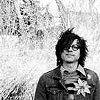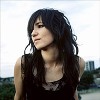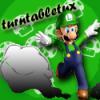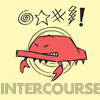What kind of a sleeper are you? |
  |
| *My Cinderella.* |
 Jan 8 2007, 06:51 PM Jan 8 2007, 06:51 PM
Post
#1
|
|
Guest |
I searched and I didn't really find anything like this.
So, most of you may undergo strange things in your sleep. Snoring, twitching, talking, walking...sound familiar? Here's some more information: Hypnic Jerk (aka Twitching in your sleep): A hypnic or hypnagogic jerk is an involuntary muscle twitch (more generally known as myoclonus or a myoclonic twitch) which often occurs during the transition from wakefulness to sleep (see hypnagogia). It is often described as an electric shock or falling sensation, and can cause movement of the body in bed. Hypnic jerks are completely normal, and are experienced by most people, especially when over-tired or sleeping uncomfortably. For more information: http://en.wikipedia.org/wiki/Hypnic_jerk Snoring: Snoring is the act of breathing through the open mouth in such a way as to cause a vibration of the uvula and soft palate, thus giving rise to a sound which may vary from a soft noise to a loud unpleasant sound. This most commonly occurs during sleep. The cause of snoring is some kind of blockage in the breathing passage. Those blockages can be of many kinds—here are just a few: Tongue falling into the throat Allergies Throat weakness causing the throat to close during sleep Mispositioned jaw, often caused by tension in muscles Fat gathering in, and around, the throat When the airflow in the breathing passage becomes irregular due to a blockage the soft palate may start flapping. This flapping of the soft palate is what makes the snoring sound. Numerical statistics on snoring are often contradictory, but at least 30% of the adult population and perhaps as many as 50% of people in some demographics snore. [1] [2] Snoring is usually an involuntary act, but may also be produced voluntarily. According to Dr. William C Dement, of the Stanford Sleep Center, anyone who snores and has daytime drowsiness should be evaluated for sleep disorders. For more information: http://en.wikipedia.org/wiki/Snoring Somniloquy (aka Sleep talking): Somniloquy or sleep-talking is a parasomnia that refers to talking aloud in one's sleep. It can be quite loud, ranging from simple sounds to long speeches, and can occur many times during sleep. Listeners may or may not be able to understand what the person is saying. Sleep-talking usually occurs during transitory arousals from NREM sleep. It can also occur during REM sleep at which time it represents a motor breakthrough (see sleep paralysis) of dream speech (the words spoken in a dream are uttered out loud). Full consciousness is not achieved and the sleep talker is not aware of his/her vocal output. Sleep-talking can occur by itself or as a feature of another sleep disorder such as: REM sleep behavior disorder (RBD) - loud, emotional or profane sleep talking Sleepwalking Night terrors - intense fear, screaming, shouting Sleep-related eating disorder (SRED) Sleep-talking is very common and is reported in 50% of young children, with most of them outgrowing it by puberty, although it may persist into adulthood (about 5% of adults are reported to talk in their sleep). It appears to run in families. Sleep-talking by itself is harmless and the content should be taken lightly, however it can wake up others and cause them consternation—especially when misinterpreted as conscious speech by an observer. If the sleep-talking is dramatic, emotional or profane it may be a sign of another sleep disorder (see above). Sleep-talking can be monitored by a partner or by using an audio recording device; devices which remain idle until detecting a soundwave are ideal for this purpose. One famous sleep talker is Dion McGregor, a man who became something of an underground celebrity when his roommate Michael Barr recorded his nightly soliloquies (which were often hilariously detailed), which were then released as a series of albums in the 60's. For more information: http://en.wikipedia.org/wiki/Somniloquy Sleep walking: Sleepwalking (also called noctambulism or somnambulism), under the larger category of parasomnias, is a sleep disorder where the sufferer engages in activities that are normally associated with wakefulness while asleep or in a sleeplike state. For more information: http://en.wikipedia.org/wiki/Sleepwalking Periodic leg movements: during sleep are kicking movements of the legs which occur every 20-90 seconds all during the night and may disturb the normal sleep of both the sleeper and the bed partner. For more information: http://www.cancersupportivecare.com/sleep_disorders.html As for me, I twitch in my sleep...or so I've been told. |
|
|
|
 Jan 8 2007, 07:15 PM Jan 8 2007, 07:15 PM
Post
#2
|
|
 i'm maggie =]        Group: Member Posts: 3,607 Joined: Jan 2006 Member No: 361,616 |
im a kicker. i kick in my sleep. and occasionally, i cry, too. sometimes, when i cry in a dream..i actually end up crying in real life. and then, when i wake up..im like..wtf?
|
|
|
|
| *My Cinderella.* |
 Jan 8 2007, 07:31 PM Jan 8 2007, 07:31 PM
Post
#3
|
|
Guest |
Kicker and cryer--I'd have to see what I can find on that.
|
|
|
|
 Jan 8 2007, 07:33 PM Jan 8 2007, 07:33 PM
Post
#4
|
|
 Krista.        Group: Official Member Posts: 4,380 Joined: Apr 2006 Member No: 391,319 |
Sometimes I mumble in my sleep. I think I've only walked in my sleep once or twice.
|
|
|
|
 Jan 8 2007, 07:33 PM Jan 8 2007, 07:33 PM
Post
#5
|
|
 i'm maggie =]        Group: Member Posts: 3,607 Joined: Jan 2006 Member No: 361,616 |
|
|
|
|
| *My Cinderella.* |
 Jan 8 2007, 07:56 PM Jan 8 2007, 07:56 PM
Post
#6
|
|
Guest |
|
|
|
|
 Jan 8 2007, 07:57 PM Jan 8 2007, 07:57 PM
Post
#7
|
|
 Krista.        Group: Official Member Posts: 4,380 Joined: Apr 2006 Member No: 391,319 |
I think the farthest I've walked is down to my bathroom, which is right across from my bedroom.
|
|
|
|
| *My Cinderella.* |
 Jan 8 2007, 11:46 PM Jan 8 2007, 11:46 PM
Post
#8
|
|
Guest |
The most I've ever done was fall off my bed.
|
|
|
|
 Jan 8 2007, 11:49 PM Jan 8 2007, 11:49 PM
Post
#9
|
|
 my michelle.      Group: Member Posts: 792 Joined: Oct 2005 Member No: 267,094 |
I am like..everything o___o
almost. I think i got that hypnic jerk thing once but it doesn't happen anymore. i don't think i snore. Other people claim that i talk in my sleep. o__o i don't think so. that's it i think. |
|
|
|
 Jan 9 2007, 12:21 AM Jan 9 2007, 12:21 AM
Post
#10
|
|
 Senior Member    Group: Member Posts: 77 Joined: Jan 2007 Member No: 492,052 |
I snore, apparently. Lightly. I wish I didn't.
|
|
|
|
 Jan 9 2007, 02:50 AM Jan 9 2007, 02:50 AM
Post
#11
|
|
|
Yawn        Group: Staff Alumni Posts: 9,530 Joined: Nov 2004 Member No: 65,772 |
My boyfriend has the Hypnic Jerk thing when he falls asleep, appparently I have it too, but only when i'm really tired.
My brother has the Somniloquy.... And I have no idea what I have. I know sometimes when i'm exhausted I will snore. And I think I move around a lot in my sleep. |
|
|
|
 Jan 9 2007, 04:36 PM Jan 9 2007, 04:36 PM
Post
#12
|
|
 Senior Member         Group: Head Staff Posts: 18,173 Joined: Mar 2005 Member No: 108,478 |
I don't think I do any of those things.
|
|
|
|
| *My Cinderella.* |
 Jan 9 2007, 08:21 PM Jan 9 2007, 08:21 PM
Post
#13
|
|
Guest |
Oh, lucky you!
|
|
|
|
| *x1227x* |
 Jan 9 2007, 09:15 PM Jan 9 2007, 09:15 PM
Post
#14
|
|
Guest |
I'm actually a kicker. People have told me that I kick alot and move around alot when I'm sleeping.
|
|
|
|
 Jan 9 2007, 09:16 PM Jan 9 2007, 09:16 PM
Post
#15
|
|
 *hugs and kisses*      Group: Member Posts: 809 Joined: Jan 2007 Member No: 493,443 |
im a LOG. YOU CANT WAKE ME UP FOR ANYTHING!!!
|
|
|
|
 Jan 9 2007, 09:21 PM Jan 9 2007, 09:21 PM
Post
#16
|
|
 define our lives for us.         Group: Staff Alumni Posts: 11,656 Joined: Aug 2004 Member No: 43,293 |
I'm a snorer & a sleep talker. XD Is there anything on grinding teeth while sleeping? 'Cause I seem to do that a lot and I have no idea why. I've always slept walk before.. but I don't think it has ever happened again. It happened twice only when I was younger. Meh.
|
|
|
|
 Jan 9 2007, 09:24 PM Jan 9 2007, 09:24 PM
Post
#17
|
|
 R U A Q T ? [;        Group: Official Member Posts: 7,276 Joined: Jun 2006 Member No: 421,631 |
i'm a snorer.
my brother said i used to sing in my sleep too. LOL |
|
|
|
| *My Cinderella.* |
 Jan 9 2007, 10:12 PM Jan 9 2007, 10:12 PM
Post
#18
|
|
Guest |
Singing? I think thats so cool.
|
|
|
|
 Jan 10 2007, 12:45 AM Jan 10 2007, 12:45 AM
Post
#19
|
|
|
You can't keep running from what you're trying to find.        Group: Official Member Posts: 5,030 Joined: Oct 2004 Member No: 54,096 |
I have those falling sensations every once in awhile. Usually I'm a heavy sleeper.
|
|
|
|
 Jan 10 2007, 09:40 AM Jan 10 2007, 09:40 AM
Post
#20
|
|
|
I'm Cattt. :]       Group: Validating Posts: 1,722 Joined: Apr 2005 Member No: 130,831 |
i walked a couple of times...
i was dreaming i was walking to my parents room for some reason... and in fact i was... but i don't remember even opening the door to my room... or even waking up... i cry in my sleep too... just did last night. |
|
|
|
| *My Cinderella.* |
 Jan 10 2007, 06:01 PM Jan 10 2007, 06:01 PM
Post
#21
|
|
Guest |
Crying as in...from an issue or naturally? I've been trying to look that up but I haven't seen anything on it except for toddler sleeping habits.
|
|
|
|
 Jan 10 2007, 11:49 PM Jan 10 2007, 11:49 PM
Post
#22
|
|
 Senior Member    Group: Member Posts: 66 Joined: Jan 2007 Member No: 494,188 |
|
|
|
|
 Jan 13 2007, 11:59 PM Jan 13 2007, 11:59 PM
Post
#23
|
|
|
Senior Member     Group: Member Posts: 140 Joined: Jan 2007 Member No: 492,291 |
i'm a deep-sleeper; sometimes i don't hear my alarm clock
i also scrunch up like a ball when i sleep |
|
|
|
 Jan 14 2007, 01:41 AM Jan 14 2007, 01:41 AM
Post
#24
|
|
 Senior Member      Group: Member Posts: 569 Joined: Dec 2006 Member No: 490,667 |
I kick in my sleep
|
|
|
|
 Jan 14 2007, 01:57 AM Jan 14 2007, 01:57 AM
Post
#25
|
|
 my michelle.      Group: Member Posts: 792 Joined: Oct 2005 Member No: 267,094 |
^ i used to do that too. i wonder if that's some kind of problem too. but i don't think i do that anymore.
|
|
|
|
  |
1 User(s) are reading this topic (1 Guests and 0 Anonymous Users)
0 Members:













